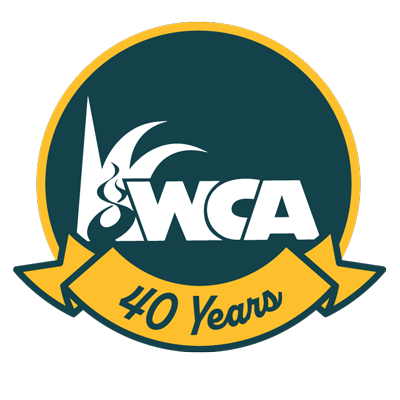an original article by Paul Lewing
I recently met with a gallery owner about an upcoming show, and in the course of our discussions she mentioned that I would need to have my own insurance to cover loss or damage to my artwork while it was on consignment there, because they did not have insurance to cover that.
It reminded me once again of how many gallery owners and artists in Washington State are not even aware that a law exists covering consignment sales, much less what it states. It seems the only people I mention this to who are aware of it are those of us who were around in 1981 when the law was passed.
The relevant law is RCW 18.110. Go to https://app.leg.wa.gov/rcw/default.aspx?cite=18.110 to read the complete text. In fact, it would be a good idea to print it out and keep a copy to show galleries. This law was passed to prevent abuses such as a gallery going bankrupt and the artists’ work being sold off to pay the gallery’s creditors. It makes clear that work on consignment remains the property of the artist.
The law defines consignment as "On consignment means delivered to an art dealer for the purpose of sale or exhibition, or both, to the public by the art dealer other than at a public auction.” In a consignment arrangement, the artist sets the retail price, the artist and the gallery agree on a percentage of that price that will be kept by the gallery, and the gallery remits the remainder to the artist within a specified time, usually 30 days. This is in contrast to a retail sale, in which artists set the price, sell the work themselves, and keep all the money; or a wholesale sale, in which artists set a price lower than the retail price, the store pays the artists that price, and then the store owns the work and sets the retail price.
The pertinent part of this definition is the “delivered to an art dealer”. It means that though the work remains the artist’s property, it is out of his or her control.
The most important provision of the law is RCW 18.110.020(4): “The art dealer is strictly liable for the loss of or damage to the work of fine art while it is in the art dealer's possession. For the purpose of this subsection the value of the work of fine art is the value established in a written agreement between the artist and art dealer prior to the loss or damage or, if no written agreement regarding the value of the work of fine art exists, the fair market value of the work of fine art.” Note that the law strongly recommends, but does not require, a written contract.
Note especially that the law is very clear that the dealer is strictly liable for loss or damage. This is not a matter of opinion, nor is it up for negotiation. Dealers will often tell you that their lawyer or insurance agent tells them they are not liable. Unless their lawyer is a specialist in art law, they will not know about this, and an insurance agent is even less likely to know this. Additionally, insurance is not the issue here; the issue is liability. If your work is lost, and the owners of the store have no insurance, then they are personally liable. You may have to sue in small claims court, but you would undoubtedly win.
Often a gallery will have their own consignment agreement which will state that they are not liable. Sorry, but that provision in their contract is invalid, even if an artist signs that contract, and an artist is not legally allowed to sign that right away. I spoke to Ben Kerr of Kerr Law Firms, a lawyer who works with a lot of artists, who I was referred to by Artist Trust. He told me that a contract that stipulates the commission of an illegal act cannot be valid. His example was of a tenant subletting an apartment. If a tenant signed an agreement with a landlord that said he would not sublet to a Black person, that part of the contract could not be valid, because it would violate anti-discrimination laws.
I once had work on consignment for a month in a coop gallery of which I was not a member. The director argued that this provision in the law (which she was unaware of) did not apply because it was a coop gallery. Wrong again. Even for members of the coop, the coop as a whole is liable for work on consignment there. If you are a member of a coop, ask if your organization has insurance, because if the place burns down and all of the work is destroyed, you as part owner are responsible for compensating all the artists.
If you have work on consignment, it’s a good idea to periodically do an inventory update. I have always done this with all my outlets. Every year, usually in February after I’ve been paid for December sales, we round up anything that’s been there for more than 2 or 3 years. I take back the old stock and they pay me for anything that’s missing. Some places are better at this than others, and I have dropped venues that cannot keep track of their inventory.
Some good resources on consignment issues are Artist Trust (https://artisttrust.org) and Washington Lawyers for the Arts (https://www.thewla.org). There are also sample consignment agreements available for download, if a gallery you’re working with doesn’t have one.
